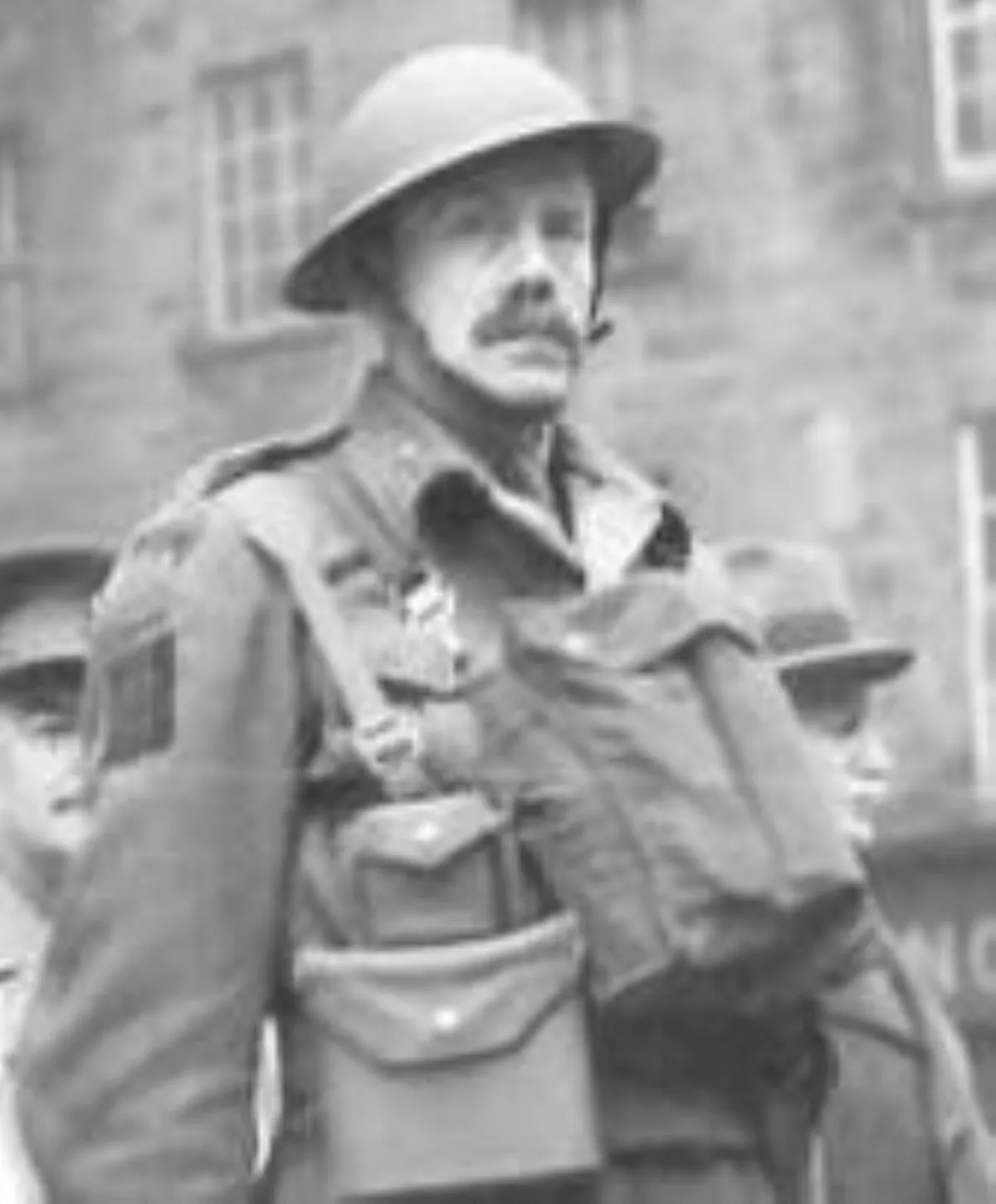 1.
1. Douglas Neil Wimberley was born on 15 August 1896 at 8 Ardross Terrace, Inverness, Scotland, the son of Surgeon-Captain Charles Neil Campbell Wimberley, and Minnie Lesmoir Gordon, daughter of R J Wimberley.

 1.
1. Douglas Neil Wimberley was born on 15 August 1896 at 8 Ardross Terrace, Inverness, Scotland, the son of Surgeon-Captain Charles Neil Campbell Wimberley, and Minnie Lesmoir Gordon, daughter of R J Wimberley.
Douglas Wimberley was promoted to lieutenant on 17 March 1916, and, in October, was sent to England, where he attended the Machine Gun Training Centre at Grantham, Lincolnshire and, returning to the Western Front, was promoted to the acting rank of captain on 12 February 1917, and assumed command of the 232nd Machine Gun Company, which in July became part of the 51st Division, a Territorial Force formation.
Douglas Wimberley's company fought in the Battle of Passchendaele.
On 18 February 1918 Douglas Wimberley was promoted to the acting rank of major.
Douglas Wimberley was afterwards posted as a company commander in the 9th Reserve Battalion, Machine Gun Corps, a training unit.
Shortly after the end of the war, in 1919, Douglas Wimberley, now serving with the 8th Battalion, MGC, was despatched to Russia during the Russian Civil War.
Douglas Wimberley chose to stay in the army during the interwar period and, in 1921, served as the assistant adjutant of the 2nd Battalion, Cameron Highlanders, then stationed at Queenstown during the Irish War of Independence.
On 1 January 1933 Douglas Wimberley was promoted to the brevet rank of major, the same year that he won the Army Quarterly military prize for an essay on recent military campaigns.
Shortly after the Second World War began, in September 1939, Douglas Wimberley took his battalion to France, where it formed part of the British Expeditionary Force.
The division was commanded by Major-General Horatio Berney-Ficklin, succeeding the original General Officer Commanding, Major-General Harold Franklyn, on the same day as Douglas Wimberley took command of the 13th Brigade.
On 21 May 1941 Douglas Wimberley was promoted to the acting rank of major-general and became GOC of the 46th Infantry Division, succeeding Major-General Charles Hudson, who had been one of Douglas Wimberley's fellow students at the Staff College, Camberley in the late 1920s.
Douglas Wimberley was made GOC at the specific request of his predecessor, Ritchie, who was then being posted to the Middle East.
The 51st Division to which Douglas Wimberley was now GOC was a very different formation from that which Douglas Wimberley had served with during the Great War.
The division as it stood would now be able to fight as a unit, and Douglas Wimberley made a successful effort to instill a sense of esprit de corps in the unit.
Douglas Wimberley often paused to assist troops carrying out work or briefed individual private soldiers, so as to make them better understand the part which they were to play.
Known, trusted and respected by Montgomery, Douglas Wimberley led the 51st Division across North Africa and almost continuously throughout the Tunisian Campaign, fighting at Mareth, Medinine, Akarit and Enfidaville, and Adrano.
On 29 December 1942 Douglas Wimberley was awarded the Distinguished Service Order for "gallant and distinguished services" so far in the campaign.
Shortly after the capture of Tripli, Douglas Wimberley's division was visited by Winston Churchill, the British Prime Minister, and General Alan Brooke, now the Chief of the Imperial General Staff, who, like Montgomery, had formerly been one of Douglas Wimberley's Staff College instructors.
On 4 February 1943, when Churchill and Brooke arrived, Douglas Wimberley ordered a composite brigade of the 51st Division, all of whom were wearing kilts and were led by the massed pipers, to march past the Prime Minister and CIGS.
On 24 June 1943 Douglas Wimberley was mentioned in despatches for his services in North Africa.
On 5 August 1943 Douglas Wimberley was made a Companion of the Order of the Bath.
Douglas Wimberley held this post until his resignation from the army on 8 October 1946, after a 31-year military career, when it became clear that, with Montgomery having now become CIGS, in succession to Brooke, he would progress no higher in the army.
Douglas Wimberley attempted to expand University College whilst at the same time not undermining the parent University, and its principal, James Irvine.
Douglas Wimberley worked as closely with the staff and students of the college as he had with the officers and men of his division.
Douglas Wimberley was not considered for this new position and left the University.
In 1973, Douglas Wimberley collated his papers and diaries into a five-volume autobiography called Scottish Soldier.
Douglas Wimberley died at Foxhall, Coupar Angus, on 26 August 1983, shortly after turning 87.